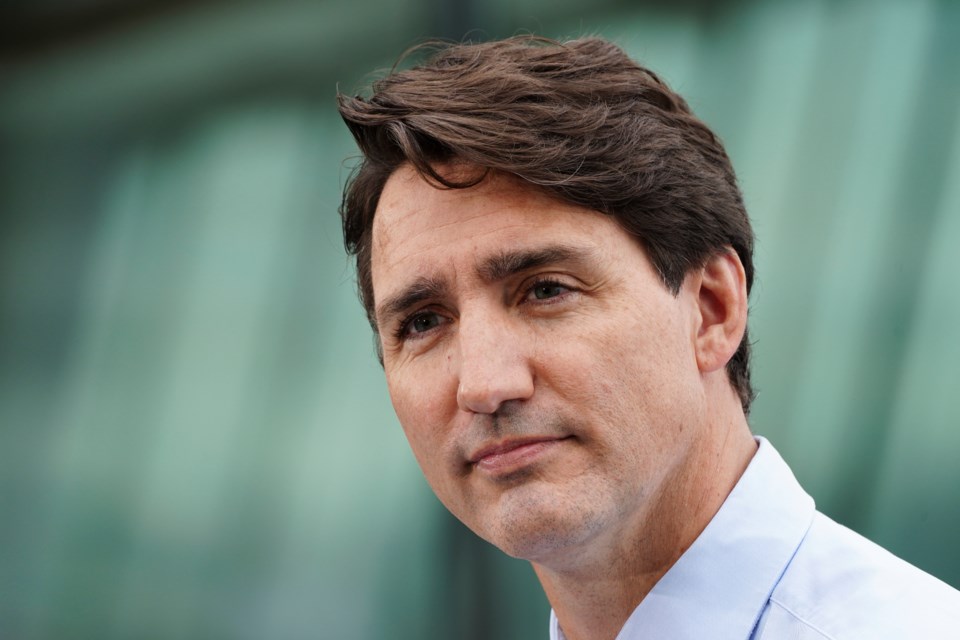Like it or not, Canadians are headed to the polls again on Monday, Sept. 20.
In Whistler and the Sea to Sky, there were five confirmed candidates as of Tuesday, Aug. 17: Incumbent Patrick Weiler (Liberals); former MP John Weston (Conservative); Avi Lewis (NDP); Mike Simpson (Green Party); and Doug Bebb (PPC).
The deadline for candidates to submit their nomination papers is Aug. 30.
But will the 36-day campaign—the shortest allowed under the federal Election Act—offer enough time to properly probe the big issues like COVID-19 recovery, climate change and wildfire, Indigenous affairs and the turmoil in Afghanistan (to name just a few)?
“I think the question we’re all asking is what is the dominant narrative, what are the key issues that are going to drive this campaign?” said Max Cameron, a political science professor at the University of British Columbia.
“And we don’t really know, because the first criticism of the prime minister’s decision to call an election focuses on precisely that: It’s not exactly clear what the campaign is about, or why it’s even necessary.”
Prime Minister Justin Trudeau’s minority government has not lost a vote of confidence, nor has it lacked support from the opposition parties, Cameron said.
“But Trudeau is well ahead in the polls, and clearly thinks that he can parlay his minority into a majority government,” he said.
“That doesn’t seem like a compelling reason for an election. It seems like a partisan reason for an election, so he’s going to have to come up with an explanation for why it is that there has to be an election now, or what kind of mandate he needs that he doesn’t currently have.”
With the country heading into the fourth wave of the COVID-19 pandemic, the timing of the election call may make for an “awkward campaign,” added Stewart Prest, a lecturer in political science at Simon Fraser University.
“I think Canadians, in part, are going to be voting on who they think will be the safest pair of hands to get the country through the next chapter of this saga, and so that means a combination of providing for health security, but also economic security for the country,” Prest said, adding that, while there is a risk in calling an election in the midst of a pandemic, voters will likely move beyond that and into the real issues before long.
Amidst another disastrous wildfire season in B.C., one of the top issues for voters in the province is the environment and climate change—one that may play to the strength of the Liberals, Prest said.
“The Liberals have some bonafides on climate-change related issues, with the creation of a carbon tax for the country as a whole,” he said.
“No other party can say they have done this much at the federal level, and so even amidst the wildfires and the heat dome that we’ve seen, that is something that may help the liberals, certainly vis-a-vis the Conservatives, who continue to have, I think, a credibility gap on that issue.”
But the Liberals’ credibility on climate isn’t bulletproof, Cameron pointed out.
“You see the statements coming out of the prime minister’s office suggesting that they’ve set targets, they’ve got policies in place to achieve them, and fair enough, but at the same time they’re building pipelines, right? So they’re preparing for decades of fossil fuel development,” he said.
In Whistler and across B.C., the question of labour and tourism recovery will no doubt be among the top issues of the 2021 election.
“It’s probably as bad as it’s ever been, or maybe even worse,” said Walt Judas, president and CEO of the Tourism Industry Association of BC (TIABC), noting that pre-pandemic the industry estimated it would need 100,000 new workers within a 10-year span.
“It’s worse than that now. I know of hotel general managers who are doing laundry … It’s a really, really desperate situation for so many businesses.”
It’s not entirely a wage issue either, Judas added.
“There are housekeepers that are making $25 to $30 an hour or more, and that’s not a high-skilled position,” he said. “It’s hard work to be sure, but they’re being paid good money, and yet there is still a need for housekeepers, and jobs that are similar to that.”
On Aug. 16, Trudeau announced that a re-elected Liberal government will offer more support for businesses hit hardest by COVID-19, including temporary wage and rent support of up to 75 per cent of expenses to help tourism operators through the winter, as well as an extension of the Canada Recovery Hiring Program (a subsidy to cover a portion of employee wages) to March 31, 2022.
The pledge is welcomed by TIABC, and the industry will be watching for similar support from the other parties, Judas said.
And on the question of labour, “would whomever forms the next government consider investing in and promoting and developing tourism jobs as part of its marketing efforts, or its mandate?” he said.
“Would government consider changing the immigration system to ensure that tourism can benefit from workers for all job levels that meet the needs and help the industry with demand for growth in the future, and to help bolster local economies?”
A Whistler all-candidates meeting is scheduled for Wednesday, Sept. 8 on Zoom.
Read more about each local candidate on their respective websites: reelectpatrickweiler.com; johnweston4mp.ca; avilewis.ca; mikesimpson.ca; and bebbppc.ca.




